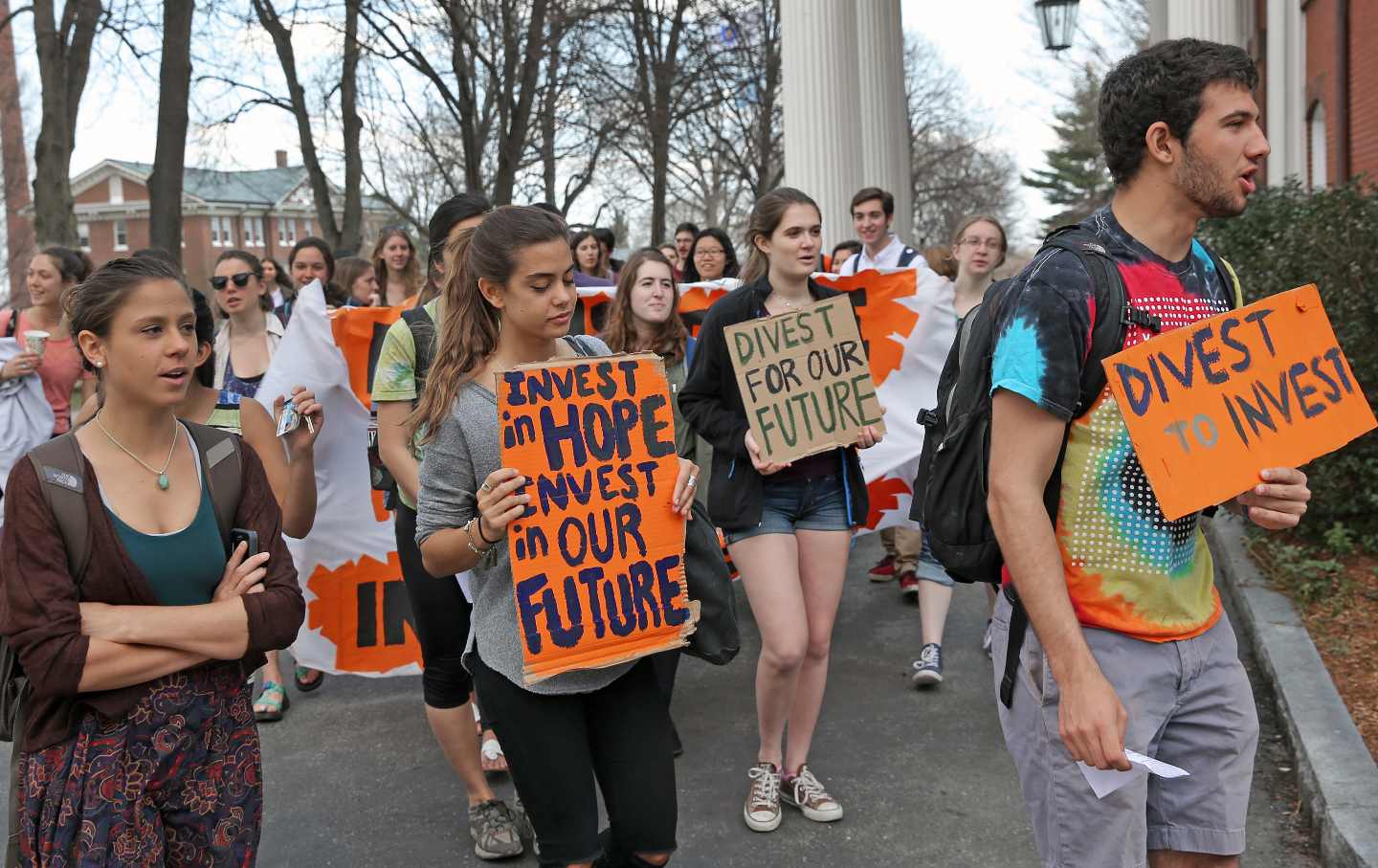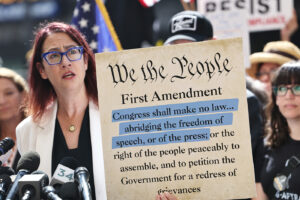November 6, 2025
Winning a Fossil Fuel Divestment Pledge Is Hard. Keeping It Is Harder.
By Nic Wong
Nearly a decade after promising to withdraw millions in fossil fuel investments, the University of Massachusetts has stalled on its clean energy transition. What happened?

In 2016, the University of Massachusetts became the first major public university in the United States to sever direct financial ties with the fossil fuel industry. For years, relentless student organizing had been met with administrative intransigence and repeated rejection. But the Divest UMass campaign only grew larger, louder, and more determined.
When protests escalated into sit-ins, administrators called police to break them up. Students refused to back down, and within a month, UMass pledged to withdraw an estimated $5–8 million in fossil fuel holdings from its endowment, having already been pressured to dump $400,000 in coal stocks months earlier.
After years of obstruction, the administration seemingly embraced divestment. President Marty Meehan lauded the students’ “principled persistence,” crediting them with having “put divestment on the agenda.” Then-chancellor Kumble Subbaswamy praised their “passionate commitment to social justice and the environment.”
Eager to capitalize on the positive press that portrayed UMass as a progressive climate leader, administrators repackaged a grassroots victory as institutional branding. Co-opting the storied history of campus activism from anti-Vietnam protests to anti-apartheid campaigns, they rolled out its latest slogan: “Be Revolutionary.” It was introduced alongside a new strategic plan promising a just transition to renewable energy and a pledge to achieve carbon neutrality by 2032. A student referendum endorsed the proposal with 92 percent support.
But what appeared as an unambiguous victory for students and the planet—an example of the university as a laboratory of democracy and social change—has soured into institutional hypocrisy. Rather than deepen commitment to civic engagement, they have instead cultivated a culture of opacity and repression, designed to ensure that such campaigns never succeed again. Nearly a decade after the divestment pledge, UMass has stalled on its clean energy transition, and the university continues to maintain indirect fossil fuel investments.


